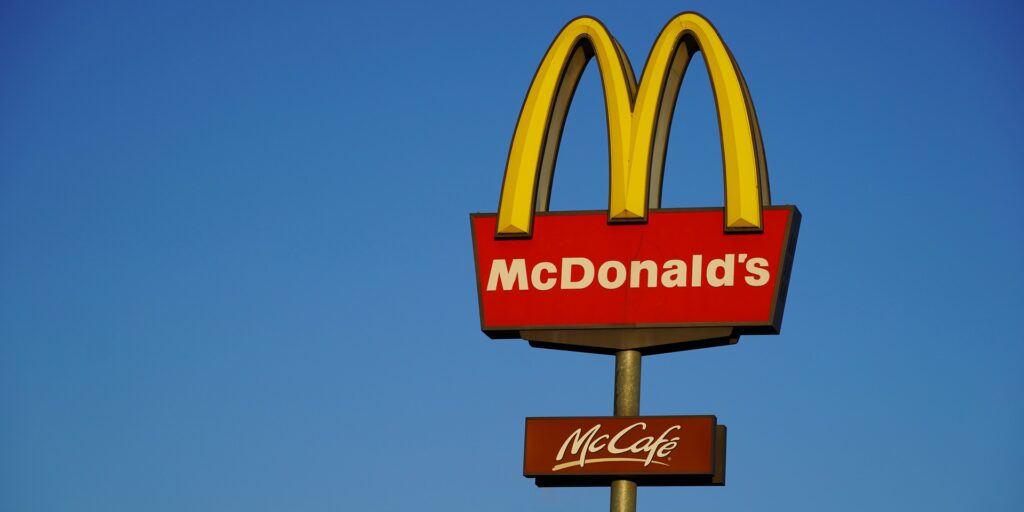- Swing and a miss for torpedo bat trademark application? - April 23, 2025
- Copyright lawsuit could create new licensing option for media industry - January 29, 2025
- Trademark law is not intended to stifle competition - November 14, 2024
By Tony Poland, LegalMatters Staff • It is not surprising McDonald’s lost exclusive rights to the use of the term “Big Mac” for chicken products in Europe but the loss is unlikely to significantly affect the fast-food behemoth’s rights in its iconic brand, says Toronto intellectual property lawyer John Simpson.
The European Court of Justice recently ruled that McDonald’s is not entitled to exclusive rights to use “Big Mac” with chicken products since it had not sold Chicken Big Macs in five years.
“From a trademark lawyer’s perspective, this is a decision that is to be expected,” says Simpson, principal of IP boutique Shift Law Professional Corporation. “ And from McDonald’s perspective, this ruling is not a game changer.
‘A pretty unsurprising and routine decision’
“This case likely grabbed the attention of many people because it is difficult to imagine McDonald’s losing the rights to ‘Mac’ anything,” he tells LegalMattersCanada.ca. “But looking at it through an intellectual property lens, it is a pretty unsurprising and routine decision. McDonald’s made a commercial decision not to market this particular product for five years in the European Union and someone has chosen to take advantage of that by chipping away at the scope of the McDonald’s trademark portfolio.”
According to BNN Bloomberg, Supermac’s, the largest Irish-owned fast-food chain in the European Union, claimed that McDonald’s had not put the Big Mac trademark into “genuine use” with chicken products in Europe and the court agreed.
“The evidence which was submitted by McDonald’s does not provide any indication of the extent of use of the mark in connection with those goods, in particular as regards the volume of sales, the length of the period during which the mark was used and the frequency of use,” the ruling stated.
While Supermac’s hailed the decision as “a significant victory for small businesses throughout the world,” McDonald’s noted that it “does not affect our right to use the ‘Big Mac’ trademark.” McDonald’s can appeal the decision.
For Simpson, the outcome makes perfect legal sense.
Unlikely to change IP landscape
“Since McDonald’s has lost some protection in its Big Mac rights in Europe, I suspect some might ask if they can now market a product called a ‘Chicken Big Mac”’. The answer in my view would be no,” he says. “The ruling does not significantly narrow the scope of McDonald’s exclusive rights in its Big Mac trademark since the mark is so well known. Anyone who uses ‘Big Mac’ to market a sandwich-type product is likely infringing McDonald’s rights in Big Mac regardless of what kind of meat is in the sandwich and regardless of whether that meat is specifically named in McDonald’s existing trademark registrations for Big Mac.”
In Canada, if someone is unable to prove that they haven’t used their trademark for the goods or services in three years, then that mark can be expunged, Simpson says, while in Europe the continuous period is five years.
“There can be special circumstances to excuse non-use and occasionally that is a subject of litigation,” he says. “For example, the COVID-19 pandemic could have been a reason why someone did not have the opportunity to market certain products.
“One of the core policies of intellectual property law – and this worldwide – is that a trademark is only protectable if it is in use,” Simpson adds. “Provisions under Canada’s Trademark Act allow anyone to require the owner of a registered trademark to produce evidence that they have used the trademark in the previous three years with all of the goods and services that are named in the registration. If they haven’t, the registration is invalidated or narrowed in scope. That is what has happened in McDonald’s case.”
‘Thicket of trademark protections’
While a trademark is basically a “use it or lose it” proposition, he explains intellectual property law can be nuanced. For instance, big brand owners such as McDonald’s will try to create “a thicket of trademark protections,” he says.
“They will register their core trademark and follow that with a collection of adjacent marks,” Simpson says. “McDonald’s had the original Big Mac, then the double Big Mac and the chicken Big Mac, for example.
“They have other food items such as McMuffins, McGriddles, McFlurry, McDoubles, McWraps, and so on,” he adds. “So, when someone opens a business and wants to name something Mac or Mc, McDonald’s can produce pages of registrations for their trademarks.”
Owners may reintroduce a product at a later date
Simpson also says some owners of large trademark portfolios may have a mark for a product they have stopped marketing but plan to reintroduce at a later date. For example, earlier this year, McDonald’s brought back the McRib for a limited time.
“The McRib was in its library of trademarks and they may not have been using it at any given time,” he says. “But by owning it, they keep that protection. They would not abandon it so that if and when they decide to relaunch a product, they already have a registration for it.”
Simpson says big corporations “with huge portfolios of trademarks like to maintain them, whether they are using the products or not.”
“They will put up resistance to someone attempting to invalidate them as McDonald’s did here,” he says.

